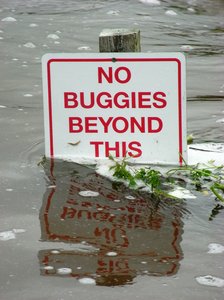According to the Official Web Site of the City of Boston, Mayor Thomas M. Menino recently made an announcement of policy initiatives and new planning to help to get Boston residents to prepare for hurricanes and other storms like Sandy.

“The steps that I am announcing…will help make our waterfront and the rest of Boston better prepared to handle future storms and get the city back in business as quickly as possible,” said Menino.
Our Boston personal injury attorneys understand that our area may need to better prepared for storms and natural disasters after a series of hits over the last several years. Menino recently heralded the release of The Boston Harbor Association’s report, Preparing for the Rising Tide. This report discusses and outlines the way our coastline works, its vulnerabilities and the ways that we can work together to try to stop the damages that will be caused by climate changes, and land uses.
Menino is requesting is that his Cabinet speed up the implementation of the new climate preparations mentioned in the City of Boston’s action plan. By the end of the year, the city is going to look over the status of its current preparation activities and look into new ways to help to make sure that Boston is ready for the changing climate.
Currently, there are cities, such as Seattle, WA and Charleston, SC, that are developing “floodable zones” that preserve the city’s access to its waterfront while minimizing damage when periodic flooding occurs.
The Association has also prepped the “Preparing for the Rising Tide” to help those who are building near the coastline to consider these threats. It’s covering threats over the next 10 years.
“It was sobering to realize how climate change is already putting Boston’s waterfront at risk,” said Vivien L, The Boston Harbor Association President.
The truth of the matter is that coastal flooding can be devastating to both infrastructures and buildings. It can damage equipment and can cause public health and environment problems. These issues can last long after the weather has returned to normal.
Consider it this way: The Mass Bay Transit Authority’s Aquarium Station entrance is less than 3 feet above today’s tidal average. It will only take one major storm to cause a disaster. It may need to be moved or raised soon after 2050 to help to avoid frequent tidal flooding.
This report is a reminder that we have to act now to help to protect our communities from the harm that has already been done – and we need to act on emissions reductions to prevent even more catastrophic harm beyond the massive flooding outlined in TBHA’s maps.
Help to protect your home or your business from any of these kinds of problems by educating yourself about the risks and what you and your family can do to help stop it before it’s too late!
If you or a loved one has suffered an injury, contact the personal injury attorneys at Jeffrey Glassman Injury Lawyers, LLC for a free consultation to discuss your claim. Call (617) 777-7777.
More Blog Entries:
Abandoned Buildings Put Everyone at Risk, Boston Personal Injury Attorney Blog, February 2, 2013
OSHA Details on Winter Dangers That Affect Construction Workers, Boston Personal Injury Attorney Blog, January 17, 2013
 Boston Personal Injury Attorney Blog
Boston Personal Injury Attorney Blog

